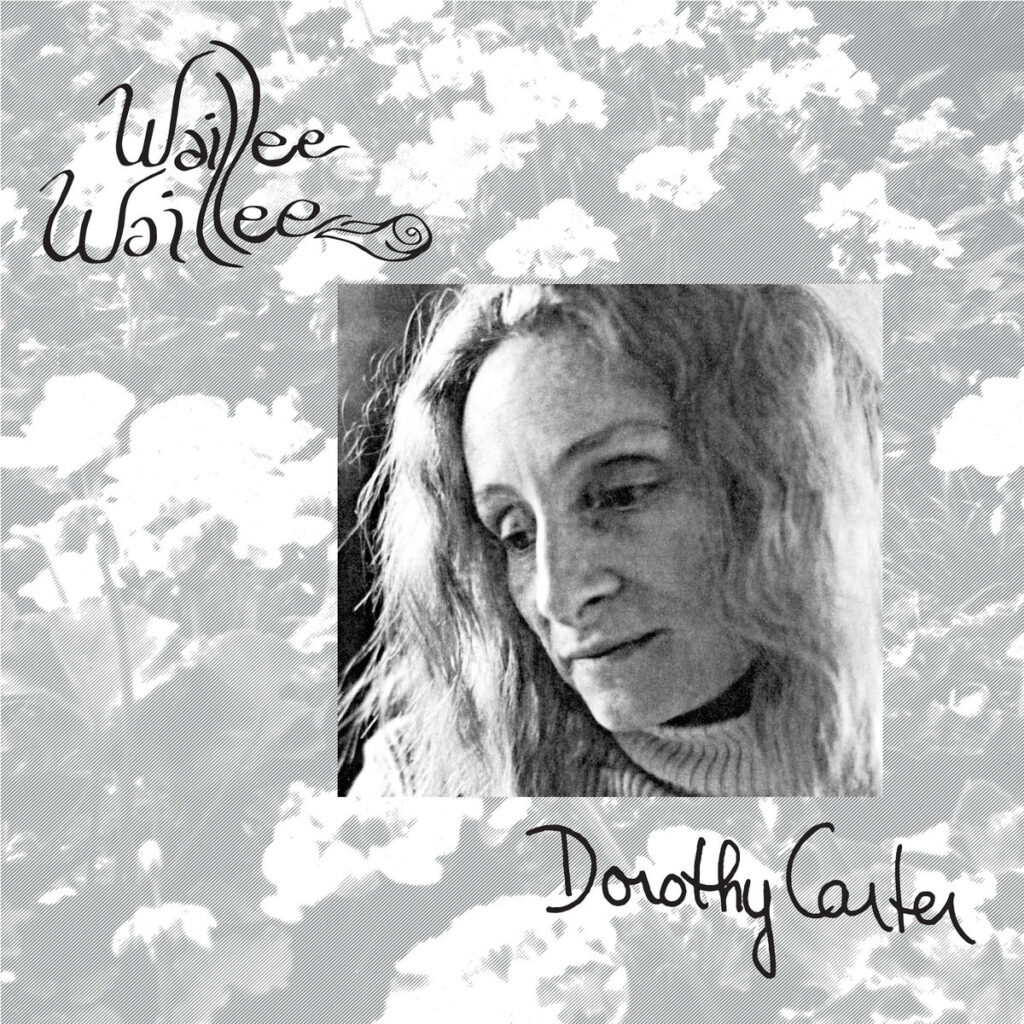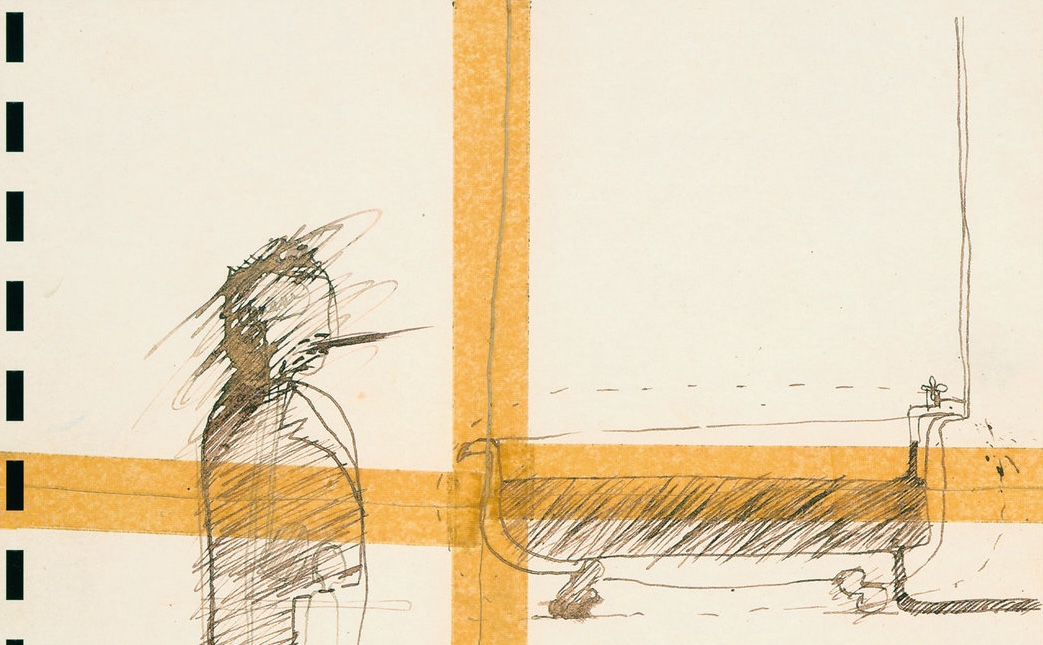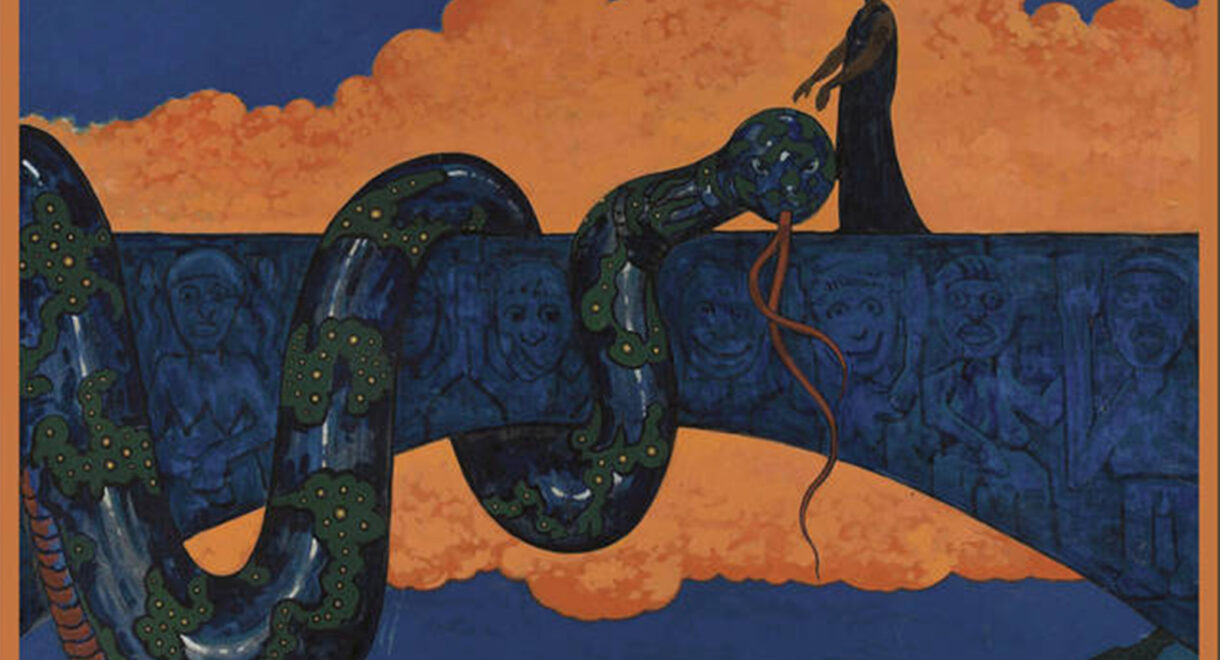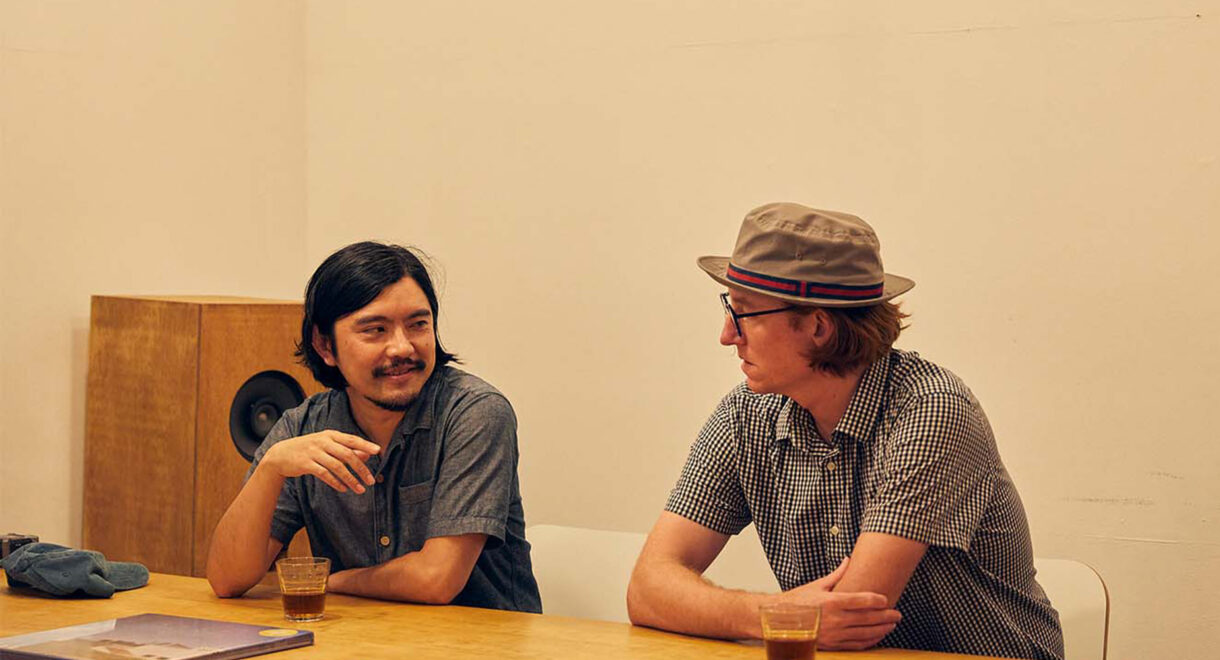New music discoveries can be particularly potent while traveling. Case in point: I recently picked up a small stack of obscurities from Chee Shimizu’s revered Physical Store that […]
Labels We Love: Palto Flats (NYC)

An interview with Jacob Gorchov, whose label has released essential recordings by Yasuaki Shimizu, Woo, Mariah, and, most recently, Dorothy Carter.
Over the past decade, the NYC-based label Palto Flats has released a series of astounding reissues, most prominently the US reissue of Yasuaki Shimizu’s 1982 album Kakashi. Owned and operated by Jacob Gorchov, the label has also resurrected essential documents from Tokyo percussionist Midori Takada, saxophonist Roland Young and British sibling duo Woo. Palto doesn’t rely solely on old recordings; Gorchov has also worked on new releases by Foodman, Robert Girardin and the electronic team of Lizzie Davis and Silvia Kastel, who record as Shakey.
Relatively speaking, 2023 has been a busy year for Gorchov. In the spring, Palto Flats reissued Woo’s sublime Into the Heart of Love as a double album and cassette. Release notes describe Woo’s vast output since 1970 as “a plethora of eclectic sounds, most falling under the blanket genre of new age, but spiraling out toward notions of ambient sounds, jazz, and other spiritual takes on modern music.” Add in crawling, dub-inspired bass lines, guitarist-songwriter Mark Ives catchy melodies and the ridiculously catchy percussion work of brother Clive Ives, and the result is a singular sound that vibes like Penguin Cafe Orchestra, but deeper and weirder.
Details on the reissue, also courtesy Palto Flats: “Into The Heart Of Love was originally self-released on cassette in 1988, with a wider cassette release in 1990. Compiled from home recordings from the preceding years, and released during a transitional point for the band, the Ives brothers see this album as their most complete work, offering space to the listener to stretch out and immerse themselves into the warmth of their sound.”
More recently, Palto Flats released the most refined recording from avant-folk dulcimer player Dorothy Carter. Called Waillee Waillee, it’s one of those records that fills a hole in your listening psyche you didn’t realize you had.
Purchase the vinyl now in the shop: https://insheepsclothinghifi.com/product/dorothy-carter-waillee-waillee-lp/
Here are some details on Waillee Waillee, courtesy Palto’s always-extensive release notes:
As recounted in Laraaji’s contribution to the liner notes, Dorothy was “someone who really influenced my early zither exploration and vocabulary and inspired my shift toward hammered zither performance and recording,” after encountering him busking on the sidewalk one day in the 1970s. Later, when living in Berlin in the early 1990s, Dorothy would begin work on manuscripts detailing the history of the dulcimer family and providing extensive sheet music, selected material of which is reproduced in the twelve page booklet included with this release. Dorothy would find later success touring and performing in the late ’90s with the ensemble Mediæval Bæbes, which she led with British musician Katherine Blake, playing a prominent role on their first four albums.

Palto Flat’s Jacob Gorchov recently hopped on the phone to talk about the label, his work with Woo, Yasuaki Shimizu and Carter. The following has been edited for length and clarity.
Randall Roberts: How did you come across Dorothy’s work?
Jacob Gorchov: Honestly, I don’t even remember where I initially got the record, but I’ve known her work for a long time. Troubadour‘s quite a common record. You can find it for $15 or $20. But at some point, I came across Waillee Waillee, which really is, I think, a remarkable, remarkable work. And certainly when I listened to it for the first time I was really affected by it, particularly the two raga-esque tracks, which are the side enders, “Summer Rhapsody” and “Tree of Life.”
Just to give you a little bit of background with me and the label and how I run it. We erroneously get called a reissue label, but it’s pretty much like 60/40, I would say, at this point. Sixty percent being reissues, 40 being new. It’s just that the reissues tend to have more of an impact. With reissues, my driving focus is something that’s very personally important to me, so I take the time with their projects. Waillee Waillee is one of those records.
There’s been many records that I’ve worked on that I think would be good reissues, but then I take a step back, because ultimately they’re not pieces of work that strike me in the same way that, you know, a record like Mariah’s Utakata No Hibi or Waillee Waillee or Woo, for that matter. I know that you had written about Woo for the LA Times. I grew up listening to Woo. In college, I was listening to Woo till like 3 am. It’s remarkable to get to work with someone who is such an important, formative group.
I was late to Woo. I didn't hear them until Douglas (Mcgowan), Yoga and Drag City reissued It's Cozy Inside.
Douglas also has some random Dorothy cassettes. He’s followed her work for a very, very long time. In fact, he showed me a random cassette of hers. She’s known because she was a busker, a troubadour just like the name of her record. She went around the world playing music on the streets and wherever anyone would have her. And she would sell these cassettes and make limited run cassettes, a lot of times with other variations of songs that exist elsewhere, and sometimes of lesser fidelity. Douglas had a copy of one of these cassettes that I had never seen before. So I was acquiring things of this nature, with a very homemade aesthetic. Waillee Waillee was definitively her most produced album.
She recorded it in Berlin?
No, she recorded it in Boston. The timeline was more or less that she was in this group called the Central Maine Power Music Company, which wasn’t really a supergroup at the time, but considering what the artists would go on to — Constance Demby and Bob Rutman as well were in it. She was one of the foremothers of New Age music — Eric Demby, who runs Smorgasburg, is related to her. So [Dorothy and Constance] had this project called Central Maine Power Music Company.
Dorothy was born in New York, in the mid 1930s, I believe. She went to conservancies, went to France, went to England studied there, studied piano originally. In the second-to-last page of the liner notes, she talks about how she came upon the dulcimer, how she was pianist and the dulcimer didn’t really move her in the same way. And then she discovered the yangqin, the Chinese variant of the dulcimer, in Chinatown in New York. She really took to it never looked back.

She would spend her summers in Maine with all these people, I believe it was called Creep City — a weird collection of artists and hippies and stuff. And she would spend her winters in New York. She would often spend time in a farm upstate, so she had that connection, as well.
Bob Rutman, who does the steel cello and who has his own work — he passed away two years ago — was based in the Boston/ Cambridge area before leaving for Berlin, and then Steve Baer, the producer, produced both Troubadour and Waillee Waillee, he had some money and was able to put the money towards the production of this album.
“Waillee Waillee,” the first song on Side B, is with drums and bass. None of her other works really have that. Sometimes it’s just her and Bob. Sometimes it’s just her. It’s the only record of hers that has that fullness of sound.
How did you come to release Yasuaki Shimizu's Kakashi? In my own wanderings, there's a ubiquity to that reissue. It seems like every good shop has that record in stock.
I consider Yasuaki a good friend at this point. He was the bandleader of Mariah. It was his project, so Kakashi came through that. Initially, I think probably in like 2015, I had written Yasuaki’s office. There’s this one track on the Mariah album called “Shinzo No Tobira.” It’s very poppy. I’ve gotten asked to sync it many different times. I don’t have the license on that, so I have to send that off. But it’s very well known. If you go to a coffee shop, it plays. If you put it on, people go, ‘Oh, I love this song.’ It’s one of those. Originally I had asked to license “Shinzo …” on a compilation or something. They were like, “I don’t know about that, but would you be interested in doing the whole album?” The whole album was a double 12-inch 45, 37 minutes.
I was like, “Yeah, sure, let’s do it.” And at the time — I’m not trying to boast — there was no real Japanese reissue market. This predated any of the Hosono reissues. The market hadn’t existed yet. There was, I think, a preconception that Japanese major labels — this was licensed through Columbia Nippon in Japan, which is a separate entity entirely from Columbia elsewhere — weren’t willing to license their albums for Western audiences.
And at that point, I began talking to them. At some point they were trying to get me to do Music for Commercials, which I don’t know if you’re familiar with.
Yeah, that is a great album.
That is a great album. I’m kicking myself now for not. The first time I met Yasuaki was in 2017, I was out in Japan, and we visited to him. He lives in a small town called Yokosuka, which is south of Yokohama. It’s right on the shore and it has a big US naval base there. We visited him and he told me that he had a full unreleased album, which became Kiren, which is the album I did last year.
I’m trying to get him to the US. He’s a lovely person. He goes way back. He’s done a ton of music with Peter Gordon and David Cunningham (Flying Lizards). He lived in London for a long time. He recorded Kakashi, actually, in the same studio that Sakamoto was doing B-2 Unit in ’82. He told me they had the studio on alternating days.
I want to know a little bit about you working with Woo on Into the Heart of Love. What a lovely, amazing album.
Honestly, it’s such a classic. Clive, you know, back in 2018, was like, “We just found this new optical transferred DAT source for Into the Heart of Love.” Originally, I had written him right around the time I was trying to do Mariah, and I had asked about doing Into the Heart of Love as a double. And he had told me that they had signed a deal already.
But he was like, “Well, we do have a massive, massive archive of unreleased material,” which they’d putting up on Bandcamp periodically. So over the next year or two, they would send me a dozen tracks a week, at least, probably around 200 or 150 total tracks, which I pared down for Awaawaa.
They're my comfort music.
I wanted to do a Woo documentary because they have a crazy story. They should have been on Cherry Red Records. Clive told me the story that Mike Alway was their roommate, or one of their roommates. He was one of the Cherry Red A&R guys. Mike was like, Whichever Way You’re Going, I’d like to put this out on Cherry Red. And they’re like, cool, cool. Woo had just gone to India, which if you see like the back cover of that album, the photos of them wearing Indian garments are taken in India. They’re very spiritual. Clive is a Reiki practitioner. When they had gotten back from India, they were going to the office to sign the contract to release to put Whichever Way You’re Going on Cherry Red. Mark handles all the singing and guitar stuff and then Clive handles like all the percussion and synth stuff. But the deal fell through.
Mike, who had brought them to Cherry Red, was like, “Look, I feel really bad about this. How about we start a little side label that’s funded by Cherry Red? They like the album, but we just can’t put it out on mainline Cherry Red.” That’s what Sunshine Series is, and that’s why it came out on that label, which, honestly, because I was talking to them, I was like, I really wouldn’t do a documentary with you because their music is so visual and filmic. And they’re such a lovely people. And Mark is such an interesting person. They both are.










